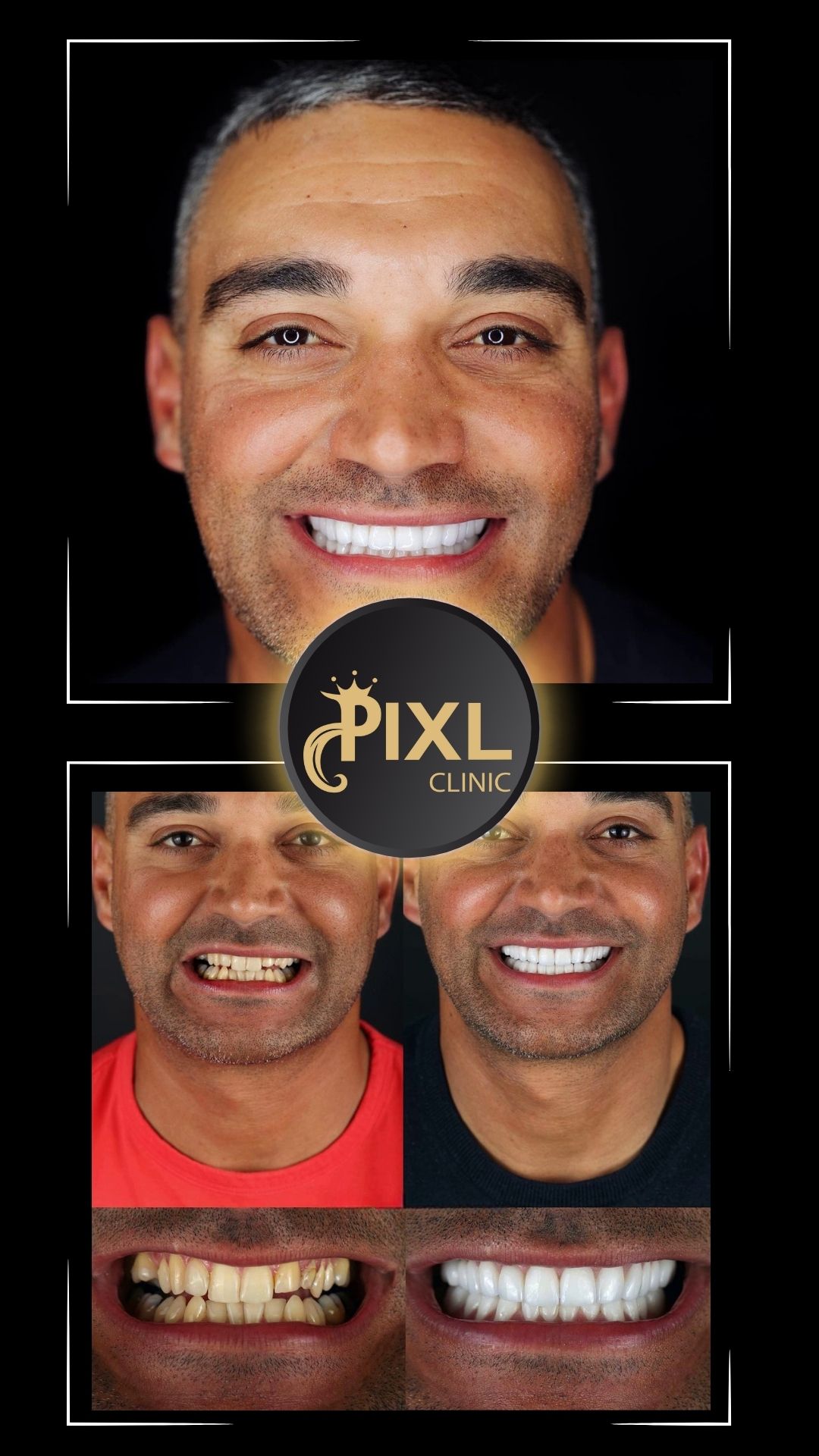Mini Dental Implants: What They Are and How They Work
Dental technology has evolved tremendously over the years, offering patients innovative solutions for missing teeth. Among these advancements are mini dental implants (MDIs), a less invasive and often more affordable alternative to traditional dental implants. If you’re considering options for restoring your smile, understanding what mini dental implants are and how they work can help you make an informed decision.
What Are Mini Dental Implants?
Mini dental implants are smaller, more slender versions of traditional dental implants. They consist of two main components:
- A titanium post that serves as the root of the tooth and is surgically placed into the jawbone.
- A retaining fixture that is integrated into the post and protrudes above the gum line, anchoring a prosthetic tooth or denture.
While standard implants typically have a diameter of 3.5–6 mm, mini implants are much smaller, with a diameter of 1.8–3 mm. This size difference makes mini implants ideal for patients who may not have sufficient bone density for traditional implants.

How Mini Dental Implants Work
Mini dental implants work similarly to traditional implants but with some distinct differences in the procedure and functionality. Here’s how the process typically unfolds:
- Consultation and Assessment During the initial consultation, your dentist will evaluate your oral health, take X-rays, and determine if you’re a good candidate for mini implants. Factors like bone density, gum health, and the location of the missing teeth play a critical role.
- Placement Procedure The placement of mini implants is minimally invasive and usually completed in a single visit. Unlike traditional implants, which may require extensive bone grafting or multiple surgeries, mini implants are inserted directly into the bone without additional preparatory procedures.
- Securing the Prosthetic Once the implants are in place, the retaining fixture is used to anchor a prosthetic tooth, denture, or bridge. In many cases, patients can leave the dentist’s office with their new teeth on the same day.
- Integration and Function Over time, the titanium post integrates with the jawbone through a process called osseointegration. This provides a stable and durable foundation for the attached prosthetic, allowing you to chew, speak, and smile with confidence.
Benefits of Mini Dental Implants
Mini dental implants offer several advantages, making them an appealing choice for many patients:
- Less Invasive Procedure The smaller size and streamlined placement process result in less discomfort, quicker recovery times, and minimal surgical risks.
- Cost-Effective Mini implants are generally more affordable than traditional implants, as they require fewer materials and less time to place.
- No Bone Grafting Required Since mini implants can be placed in areas with lower bone density, they often eliminate the need for bone grafting, which is a time-consuming and costly procedure.
- Immediate Results Many patients receive their prosthetic teeth on the same day as the implant placement, offering instant improvements in function and aesthetics.
- Improved Comfort Mini implants are designed to be less bulky and more comfortable than some other tooth replacement options.
- Versatility They can be used to support a variety of prosthetics, from single crowns to full-arch dentures.
Are Mini Dental Implants Right for You?
Mini dental implants are ideal for patients who:
- Have insufficient bone density for traditional implants.
- Need to replace smaller teeth or stabilize dentures.
- Are looking for a less invasive and more affordable alternative.
- Prefer a quicker treatment process with minimal downtime.
However, mini implants may not be suitable for everyone. Patients with severe gum disease, certain medical conditions, or insufficient jawbone may need to explore other treatment options.
Maintenance and Longevity of Mini Dental Implants
Caring for mini dental implants is similar to caring for natural teeth. Regular brushing, flossing, and dental check-ups are essential to maintain their longevity. While mini implants are durable and designed to last for many years, their lifespan depends on factors like oral hygiene, overall health, and the type of prosthetic used.
Conclusion
Mini dental implants offer a transformative solution for those seeking to restore their smile quickly and affordably. With their less invasive nature, lower costs, and immediate results, they are becoming an increasingly popular choice for patients with missing teeth. If you’re considering mini dental implants, consult with a qualified dentist to discuss your options and embark on the journey to a healthier, more confident smile.
By understanding what mini dental implants are and how they work, you can make an informed decision about your oral health and enjoy the benefits of this modern dental innovation.
FAQ: Mini Dental Implants
What are mini dental implants?
Mini dental implants (MDIs) are smaller versions of traditional dental implants used to replace missing teeth or stabilize dentures. They consist of a titanium post that acts as a tooth root and a retaining fixture to hold a prosthetic tooth or denture in place.
How are mini dental implants different from traditional implants?
- Size: Mini implants are smaller (1.8–3 mm in diameter) compared to traditional implants (3.5–6 mm).
- Procedure: Mini implants are less invasive and can often be placed in a single visit.
- Bone Requirements: They don’t require as much bone density, often eliminating the need for bone grafting.
- Cost: Mini implants are typically more affordable.
- Functionality: While traditional implants can support heavier prosthetics, mini implants are ideal for smaller teeth or denture stabilization.
Who is a good candidate for mini dental implants?
Mini dental implants are ideal for:
- Patients with insufficient bone density for traditional implants.
- Those who need to replace smaller teeth or stabilize dentures.
- Individuals looking for a quicker, less invasive procedure.
- Patients in good overall health with no severe gum disease.
What is the procedure for getting mini dental implants?
The process typically includes:
- Consultation: Your dentist assesses your oral health and bone density.
- Placement: The implants are inserted into the jawbone in a minimally invasive procedure, often without the need for incisions.
- Attachment: A prosthetic tooth or denture is secured to the implants, sometimes on the same day.
How long does the procedure take?
Most mini dental implant procedures can be completed in a single visit, often in under two hours. Recovery time is also much shorter compared to traditional implants.
Are mini dental implants painful?
The procedure is less invasive than traditional implants, so discomfort is minimal. Local anesthesia is used during placement, and most patients experience only mild soreness afterward, which can be managed with over-the-counter pain relievers.
How long do mini dental implants last?
With proper care, mini dental implants can last 10–20 years or more. Their longevity depends on factors like oral hygiene, overall health, and how well the implants are maintained.
Do mini dental implants require special maintenance?
No, they require the same care as natural teeth:
- Brush and floss daily.
- Visit your dentist regularly for cleanings and check-ups.
- Avoid habits like smoking or grinding your teeth, which can shorten their lifespan.
Can mini dental implants support full dentures?
Yes, mini dental implants are often used to stabilize full or partial dentures. They provide a secure and comfortable fit, preventing dentures from slipping or shifting.
Are mini dental implants covered by insurance?
Coverage varies depending on your insurance plan. Many dental plans consider implants an elective procedure, so it’s essential to check with your provider. Some practices also offer financing options to make the procedure more affordable.
What are the benefits of mini dental implants?
- Less invasive procedure.
- Quicker recovery time.
- Lower cost compared to traditional implants.
- No need for bone grafting in most cases.
- Immediate results, with many patients receiving their prosthetic teeth on the same day.
Are there any risks associated with mini dental implants?
As with any dental procedure, there are some risks, including:
- Infection at the implant site.
- Implant failure if the bone does not integrate properly.
- Wear or breakage of the implant over time.
These risks are minimal and can be mitigated with proper care and by choosing an experienced dentist.
How much do mini dental implants cost?
The cost of mini dental implants varies depending on factors like the number of implants needed, the location of the clinic, and the type of prosthetic used. On average, mini implants are 30–50% cheaper than traditional implants.
Can mini dental implants be used for single tooth replacement?
Yes, mini dental implants can replace a single tooth, especially in areas with limited space or bone density, such as front teeth.
How do I know if mini dental implants are right for me?
Consult a qualified dentist who will evaluate your oral health, bone density, and specific needs. They will help you decide if mini implants are the best solution for restoring your smile.
































